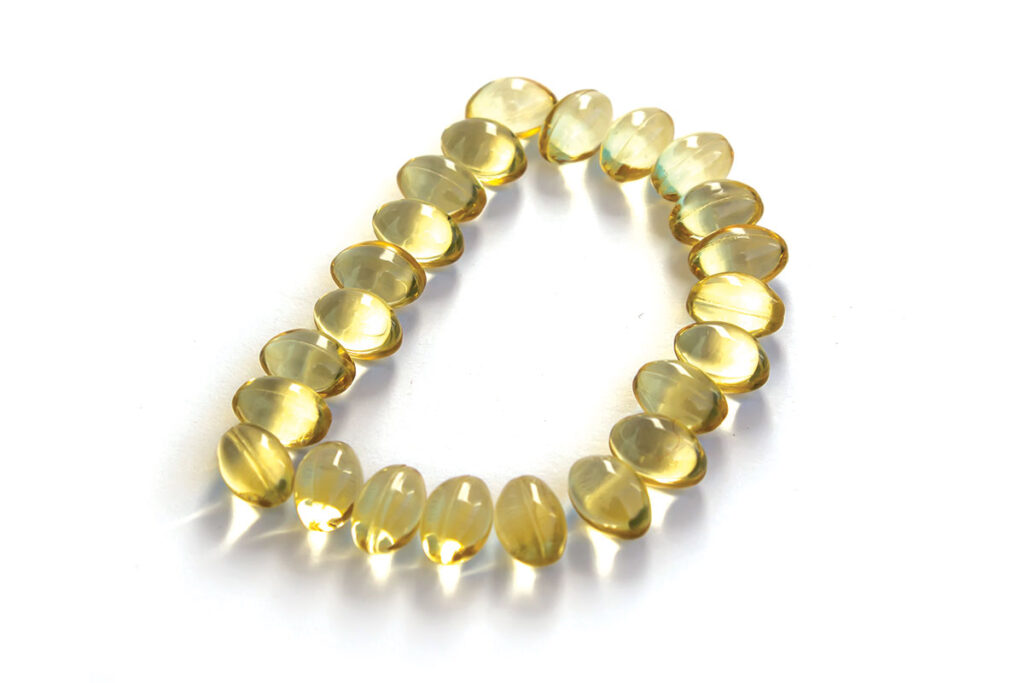Advertisement
10 Surprising Health Benefits of Vitamin D
From shortening hospital stays to helping with weight management
Fact-Checked
This article has been written and fact-checked by experts in the field.

1. Helps treat breast cancer
During the wintertime, supplementing with vitamin D is more important than ever. This multitasking vitamin benefits your overall health, including your bones, immune system, heart, lungs, muscles, and brain. Here’s a breakdown of some recent studies that might surprise you.

Some researchers recommend that people maintain vitamin D levels between 100 and 150 nmol/L for breast cancer prevention. Research is showing that women with blood levels on the higher end of the range when they’re diagnosed with breast cancer are twice as likely to survive compared to those with deficient levels.
One study showed that women with very low levels of vitamin D at diagnosis are 94 percent more likely to have the cancer spread throughout their bodies. Vitamin D may help cells stick close together and discourage rapid cell division—in other words, cancer. This study also suggests that all women with breast cancer should have their vitamin D levels checked. Doses of up to 40,000 IU per day may be needed in the short term to boost levels.
2. Speeds stroke recovery

A 2015 study evaluated the effect of vitamin D status on the severity of a stroke. Researchers found that people with lower vitamin D levels experienced more severe strokes than those with adequate levels. The researchers also discovered that for every 25 nmol/L reduction in vitamin D levels, the chance of fully recovering three months after a stroke was decreased by half.
3. Reduces hospital stays

When patients require extended hospital stays, their exposure to sunshine is minimized and their exercise levels are often eliminated. Both of these factors can lead to vitamin D deficiency. A small study looked into a possible correlation between very high doses of vitamin D over five days and duration of stay in intensive care. Those who received 500,000 IU of vitamin D averaged an 18-day stay in the hospital. Meanwhile, patients receiving 250,000 IU averaged a 25-day stay, and those who received a placebo averaged a 36-day stay.
4. Affects low back pain

If you are suffering from chronic low back pain, you may want to ask your health care practitioner to check your vitamin D levels. Chronic pain that doesn’t respond to treatment may be due to a vitamin D deficiency. One study showed that pain medication was needed in amounts twice as high in people with vitamin D deficiency, compared to those with adequate levels. Since vitamin D is a hormone, its receptors are found on every tissue in the body, including muscles, bones, immune cells, and brain cells.
5. Supports immune system

Vitamin D has a key role in immune system cells, and a deficiency may worsen existing autoimmune conditions. Supplementing with vitamin D has beneficial effects on more than just bone health. Studies have shown that vitamin D can strengthen our immunity to infections due to vitamin D receptors on cells of the immune system.
6. Helps with weight loss

Researchers in Italy set out to study the benefits of supplementing with vitamin D for six months in overweight people who were also put on low-calorie diets. The group was divided into those who did not receive any additional vitamin D, those who received 25,000 IU per month, and those who added 100,000 IU per month. All of the groups lost weight, but those who added 100,000 IU lost an average of 12 lbs (5 kg) and 2 in (5 cm) from their waists. Those who did not add vitamin D lost an average of 2 1/2 lbs (1 kg) and 1 1/4 in (3 cm) from their waists.
7. Minimizes allergy development
Vitamin D is now being researched as a means to minimize allergies in infants. Researchers found a correlation between low vitamin D status and a higher incidence of dust mite allergy as well as eczema by age one. Supplementing with vitamin D during pregnancy and early infancy can have many benefits on allergic tendencies in addition to strengthening the immune response.
8. Testing your vitamin D level

A blood test is the best way to determine your baseline vitamin D level. Ask specifically for a 25-hydroxyvitamin D (25(OH)D) test, as it provides your total vitamin D level from diet as well as sun exposure. For general health, an ideal level is at least 75 nmol/L. For cancer prevention, a level between 90 and 120 nmol/L is recommended.
9. How much vitamin D do you need?

Supplementing with 1,000 IU of vitamin D3 per day will allow 50 percent of adults to achieve ideal blood levels. Higher amounts may be necessary for some people to achieve optimal blood levels. Check with your health care practitioner if you think you’d benefit from a higher dose of vitamin D.
10. What’s the difference between vitamin D2 and D3?

Vitamin D3 is the form of vitamin D that’s created when sunlight hits your skin. It’s also found in modest amounts in fatty fish, like salmon. In supplements, D3 is typically derived from lanolin, a byproduct of wool making. It can also be sourced from some species of lichen.
Vitamin D2 is typically a synthetically produced form of vitamin D, though it can be synthesized by irradiating or sun-drying certain species of mushrooms. It used to be the predominant form of vitamin D found in supplements.
However, since vitamin D3 is more efficient at raising blood levels of vitamin D, carries less risk of toxicity, and is more stable, it’s largely replaced D2 on store shelves. Double check the fine print on product labels to be sure which type of vitamin D you’re buying.





